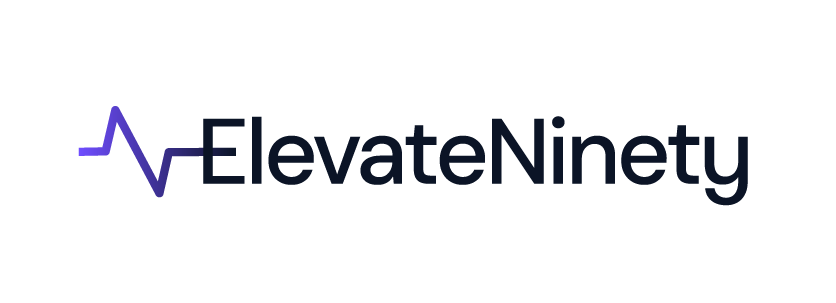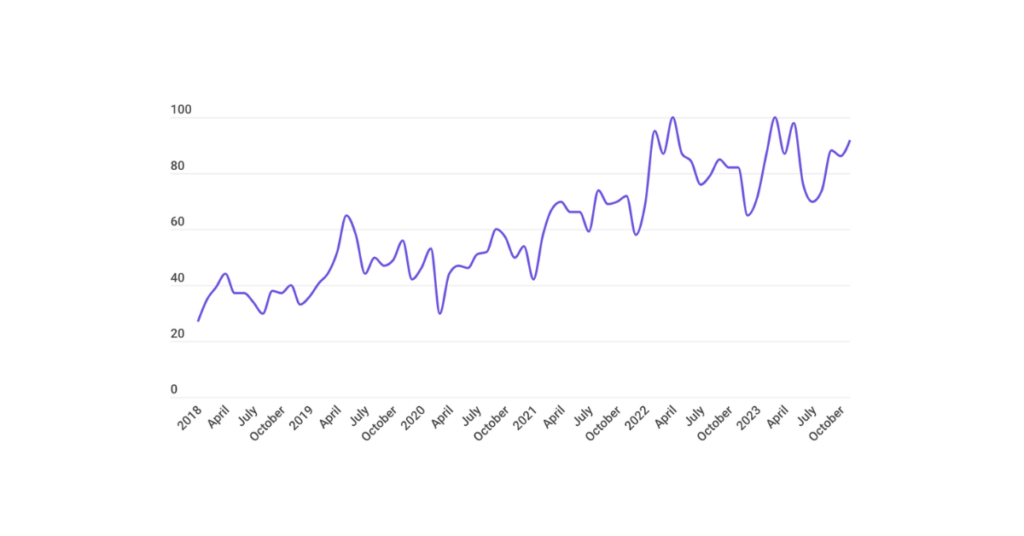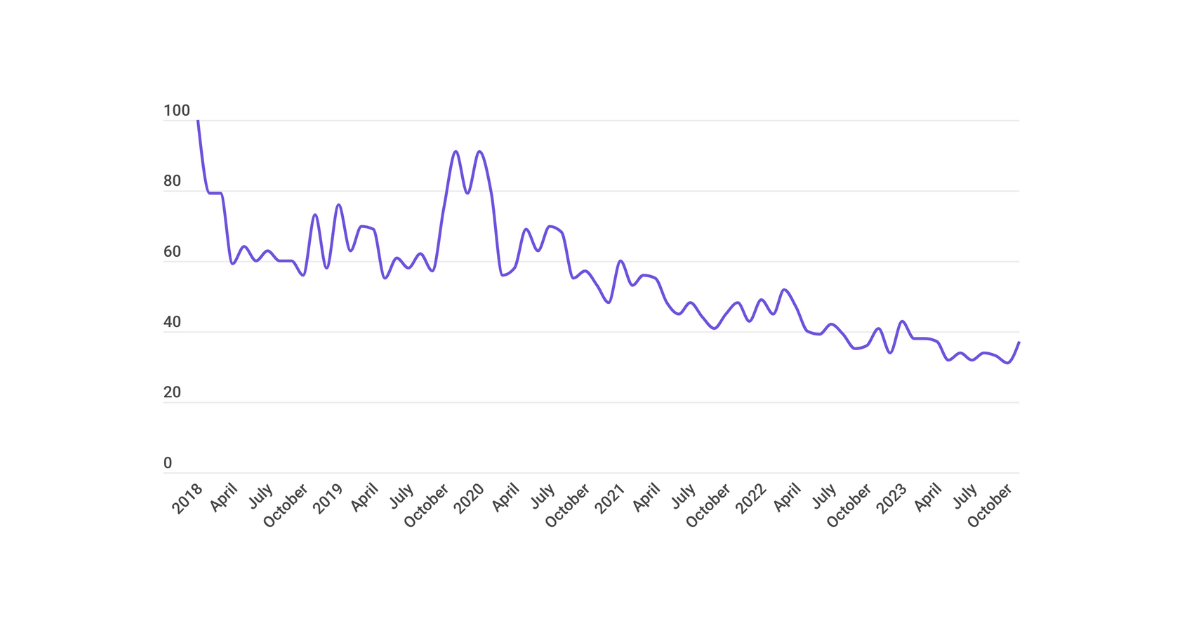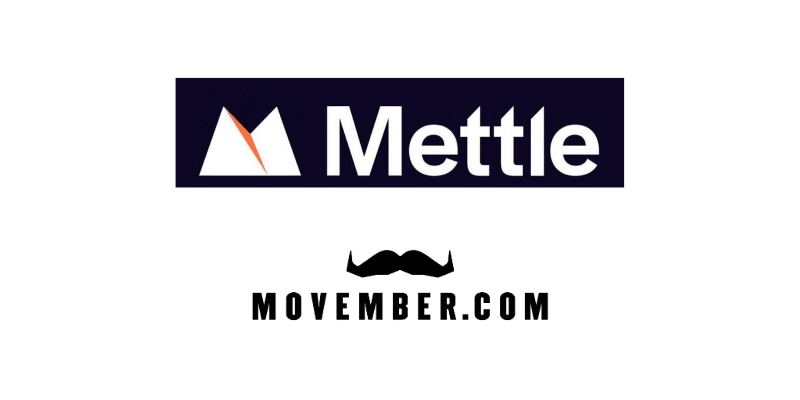In recent years, two concerning trends have emerged in the realm of search queries: the increasing interest in “work burnout” and “I am tired.” These trends warrant close attention, as they may signify a broader issue affecting individuals’ health and well-being.
The rising prevalence of these search queries is not mere happenstance; it is indicative of a societal shift in priorities, lifestyles, and, perhaps most crucially, health
Work Burnout: A Mounting Concern
The first notable trend revolves around “work burnout.” Work, once considered a source of financial stability and personal accomplishment, has increasingly become a cause of physical and mental exhaustion for many individuals. The numbers do not lie; our analysis of search data reveals a consistent and substantial uptick in global, UK, and USA search queries related to “work burnout” over the past few years. This trend is not confined to a single region; it is a global phenomenon.
The implications of this escalating interest in work burnout are profound. Burnout, characterised by chronic workplace stress, emotional exhaustion, and reduced performance, is not just a passing concern. It has tangible and lasting effects on individuals’ physical and mental health. Burnout is associated with a heightened risk of anxiety, depression, cardiovascular disease, and a compromised immune system. It affects productivity, strains relationships, and diminishes overall quality of life. Therefore, the surge in search interest for work burnout is not merely a curiosity; it is a reflection of a growing crisis in well-being.
The Perpetual State of Tiredness: A Troubling Pattern
Concurrently, the search data reveals another disconcerting trend—the increasing number of inquiries about “I am tired.” This simple phrase encapsulates a complex and widespread issue: fatigue. Fatigue is no longer just a consequence of a busy day; it has become a persistent and pervasive concern for many individuals. The search volumes for questions related to tiredness, particularly in the UK and USA, are substantial, indicating that people are seeking answers and solutions for their ongoing exhaustion.
The significance of this trend extends far beyond inconvenience. Chronic tiredness is a red flag for various underlying health problems. It can be a symptom of sleep disorders, chronic stress, poor nutrition, or undiagnosed medical conditions. Prolonged fatigue affects cognitive function, impairs decision-making, and increases the risk of accidents and injuries. Moreover, it can contribute to a vicious cycle of decreased physical activity and poor mental health, exacerbating the problem.
Key Search Data Points for I Am Tired and Work Burnout
- Globally, there was a significant surge in interest in “work burnout” in 2022, likely influenced by the ongoing COVID-19 pandemic and increased awareness.
- In the UK, interest was generally lower than the global trend, but there were notable spikes in 2018 and 2021.
- The USA had a more fluctuating trend, with a delayed surge in interest compared to the global pattern, but it also saw a significant increase in 2022 and 2023.
Top Related Questions for Tiredness and Burnout Keywords for the UK and USA
Tiredness
| UK Keywords | Average Monthly Search Volume |
| why am i always tired | 14800 |
| why am i always tired and have no energy female | 9900 |
| why am i so tired | 9900 |
| why am i so tired all the time | 6600 |
| why do i feel tired all the time | 6600 |
| why am i tired all the time | 4400 |
| do antibiotics make you tired | 3600 |
| can gallstones make you tired and dizzy | 2400 |
| why do i feel so tired | 2400 |
| can an antibiotic make you tired | 1900 |
| can antibiotics make you tired | 1900 |
| why do i always feel tired | 1900 |
| why would i be so tired | 1900 |
| why am i tired all the time female | 1600 |
| why am.i feeling tired | 1600 |
| USA Keywords | Average Monthly Search Volume |
| why am i so tired | 49500 |
| why am i always tired | 40500 |
| why am i so tired all the time | 27100 |
| why am i always tired and have no energy female | 18100 |
| why am i tired all the time | 12100 |
| do antibiotics make you tired | 9900 |
| why do i feel so tired | 8100 |
| can an antibiotic make you tired | 6600 |
| can antibiotics make you tired | 6600 |
| why does caffeine make me tired | 6600 |
| does amoxicillin make you tired | 5400 |
| why can’t i sleep at night even when i’m tired | 5400 |
| why do i always feel tired | 5400 |
| can allergies make you tired | 4400 |
| does antibiotics make you tired | 4400 |
In the UK and USA, the search trends related to tiredness demonstrate a keen interest in understanding the underlying causes of fatigue. There is a significant focus on personal experiences, with people questioning why they constantly feel tired, lack energy, or experience tiredness, particularly in females. Queries about antibiotics and gallstones making one tired indicate a curiosity about medical factors contributing to fatigue.
Overall, the UK and USA search trends reflect a deep concern about persistent tiredness and its potential causes. People frequently ask why they are so tired, always tired, or tired all the time, with a specific emphasis on female experiences. Questions about antibiotics, caffeine, and sleep difficulties suggest an interest in the impact of medications and lifestyle choices on energy levels. Allergies and antibiotics are also subjects of inquiry regarding their potential to induce tiredness. This data highlights a pervasive and diverse interest in understanding and addressing fatigue-related issues across the UK and United States.
Burnout
| UK Keywords | Average Monthly Search Volume |
| how to recover from burnout | 2400 |
| what is burnout | 1900 |
| what does burnout feel like | 720 |
| how to deal with burnout | 480 |
| how do i recover from burnout | 320 |
| how to avoid burnout | 260 |
| what is a burnout | 260 |
| how long does it take to recover from burnout | 170 |
| how to cure burnout | 170 |
| how to overcome burnout | 170 |
| how to recover from burnout nhs | 170 |
| how to treat burnout | 170 |
| how long to recover from burnout | 140 |
| how to fix burnout | 140 |
| how to get over burnout | 140 |
| USA Keywords | Average Monthly Search Volume |
| what is burnout | 5400 |
| how to recover from burnout | 4400 |
| how to deal with burnout | 1900 |
| what does burnout feel like | 1600 |
| what is a burnout | 1300 |
| how to avoid burnout | 1000 |
| how to fix burnout | 1000 |
| how to prevent burnout | 880 |
| how to cure burnout | 720 |
| how to overcome burnout | 720 |
| how long does it take to recover from burnout | 590 |
| how to treat burnout | 590 |
| what causes burnout | 590 |
| what is burnout syndrome | 590 |
| how to combat burnout | 480 |
In the UK and USA, search trends around burnout reflect a strong interest in recovery strategies, understanding the concept of burnout, and recognising its emotional and physical effects. People actively seek practical advice on dealing with burnout, aiming for effective solutions and prevention strategies. Meanwhile, a higher search volume emphasises the importance of understanding burnout, with a significant demand for recovery and coping strategies. Similar to the UK, Americans want to recognise burnout symptoms, prevent its onset, and find quick, effective cures and solutions to overcome this common challenge. Overall, both regions share a collective goal of addressing burnout and prioritising well-being.
Trend Analysis Summary: Burnout and Tiredness in the Modern World
The trends reflect not only the changing dynamics of work and daily life but also the profound implications for individuals’ health and well-being.
Burnout: A Global Crisis
- Rising Global Concern: The search interest in “work burnout” has steadily increased over time, indicating a growing global concern. This trend is not limited to any specific region, with both the UK and the USA experiencing a surge in queries related to burnout.
- Health Impact: The escalating interest in work burnout is not a mere curiosity; it signifies a broader crisis in well-being. Burnout is associated with serious health consequences, including anxiety, depression, and cardiovascular issues. It poses a significant threat to physical and mental health worldwide.
- Global Work Culture: The trend highlights the need for reevaluating work culture, practices, and policies to reduce workplace stress and prioritise employee well-being. Organisations must acknowledge and address the detrimental effects of burnout on their workforce.
Tiredness: A Pervasive Issue
- Chronic Fatigue: Search queries related to “I am tired” reveal a troubling pattern of chronic fatigue, affecting individuals on a global scale. The UK and the USA, in particular, have shown a significant increase in searches related to tiredness.
- Underlying Health Concerns: Chronic tiredness is not a minor inconvenience but often indicative of underlying health problems. It can result from sleep disorders, chronic stress, poor nutrition, or undiagnosed medical conditions. The consequences extend beyond fatigue, impacting cognitive function and overall health.
- Seeking Solutions: People are actively seeking answers and solutions for their persistent tiredness. This underscores the urgency of addressing this issue, as individuals strive to regain their energy and vitality.
What Factors are Influencing the Trends?
The trends in increasing searches for burnout and tiredness are influenced by several interconnected factors:
- Work-Related Stress: The modern workplace is often characterised by high demands, long hours, and increased pressure. Work-related stress is a significant contributor to burnout, and as more people experience stress at work, they seek information and solutions to cope with it.
- Pandemic Impact: The COVID-19 pandemic has disrupted work routines and exacerbated stress levels. The shift to remote work, concerns about health, and the blurring of work-life boundaries have made many individuals more susceptible to burnout and fatigue.
- Mental Health Awareness: There is growing awareness and de-stigmatisation of mental health issues, including burnout and fatigue. This has encouraged more people to seek information and support for their mental well-being.
- Digital Dependency: Increased screen time and digital device use, especially during the pandemic, have been linked to digital burnout and sleep disturbances. People are turning to search engines for information on managing the effects of excessive screen time.
- Health and Wellness Trends: The wellness industry has seen significant growth, with more people prioritising self-care, exercise, and healthy eating. This awareness of holistic well-being extends to seeking solutions for burnout and tiredness.
- Remote Work Challenges: As remote work becomes more prevalent, individuals face challenges such as isolation, longer working hours, and difficulty disconnecting from work. These challenges contribute to the search for strategies to manage remote work-related burnout.
- Healthcare Access: Access to healthcare services and professional guidance for burnout and fatigue may be limited for some individuals. As a result, they turn to online sources for information and advice.
- Medical Conditions: Some individuals may experience chronic fatigue or medical conditions that contribute to their tiredness. They search for information on managing these conditions and related symptoms.
- Economic Uncertainty: Economic instability and job insecurity can contribute to stress and burnout as people worry about their financial well-being. These concerns may lead individuals to search for ways to manage their mental health.
- Demographic Factors: Different age groups and demographics may have varying levels of interest in burnout and tiredness. Younger generations, for example, may be more inclined to seek information online.
What Are the Trends Telling Us About Consumer Behaviour?
The search trends related to burnout and tiredness provide valuable insights into consumer behavior and attitudes towards these issues:
- Increased Awareness: The rising search interest in burnout and tiredness indicates an increased awareness among consumers about these problems. People are actively seeking information, which suggests a willingness to acknowledge and address these issues in their lives.
- Information-Seeking Behaviour: Consumers are proactively searching for solutions, advice, and information related to burnout and tiredness. This behaviour reflects a desire for self-help and self-care, as individuals seek to understand the causes and remedies for these problems.
- Health and Well-Being Priority: The consistent search patterns for both burnout and tiredness highlight that consumers prioritise their health and well-being. These concerns extend beyond mere inconvenience, signalling a recognition of the potential health consequences associated with burnout and chronic fatigue.
- Potential for Lifestyle Changes: The search trends suggest that consumers may be open to making lifestyle changes to address burnout and tiredness. They are exploring ways to recover from burnout, boost energy levels, and improve their overall quality of life.
- Workplace Implications: For employers, these trends signal the importance of addressing workplace stress and promoting employee well-being. Organisations that proactively address burnout can foster a healthier, more engaged workforce.
Associated Trends
Several associated trends and topics emerge alongside the increasing search trends for burnout and tiredness:
- Mental Health Awareness: There is a growing awareness of mental health issues beyond burnout and tiredness. Searches for terms like “anxiety,” “stress,” “depression,” and “self-care” often accompany searches related to burnout and tiredness. This reflects a broader interest in overall mental well-being.
- Remote Work Solutions: As remote work becomes more prevalent, searches for strategies to manage remote work-related challenges, such as “remote work productivity,” “digital detox,” and “work-life balance,” have increased. People are looking for ways to maintain their mental and emotional health in a remote work environment.
- Sleep and Insomnia: Sleep-related topics are closely linked to tiredness. Searches for “insomnia,” “sleep disorders,” “sleep tips,” and “improve sleep quality” often coincide with queries about fatigue and burnout. People are seeking ways to address sleep issues to combat tiredness.
- Wellness and Self-Care: There is a surge in interest in overall wellness and self-care practices. Searches for “self-care routines,” “mindfulness,” “meditation,” “yoga,” and “wellness tips” are common. Individuals are exploring holistic approaches to reduce stress and improve well-being.
- Healthy Lifestyle: People are increasingly interested in adopting a healthy lifestyle to combat burnout and tiredness. This includes searches for “healthy diet,” “exercise routines,” “nutrition tips,” and “stress-reduction techniques.” A holistic approach to well-being is evident.
- Medical Conditions: Some individuals may search for medical conditions that can cause tiredness, such as “anemia,” “thyroid issues,” or “chronic fatigue syndrome.” They are looking to identify underlying health issues contributing to their fatigue.
- Work-Life Balance: Queries related to “work-life balance,” “time management,” and “prioritization” are common. Individuals are seeking ways to achieve a healthier balance between their professional and personal lives to prevent burnout.
- Holistic Health: The concept of holistic health and well-being is gaining traction. People are interested in topics like “mind-body connection,” “holistic healing,” and “integrative medicine” to address burnout and tiredness from multiple angles.
- Workplace and Corporate Well-being: Some searches may relate to employer-sponsored initiatives to combat burnout and promote employee well-being. These can include “employee wellness programs” and “stress management at work.”
- Energy Supplements and Vitamins: There is an increase in search and demand for supplements and vitamins that either provide energy or help to provide calm to improve sleep. The tiredness and burnout epidemic is one of the major driving forces influencing increased interest in the role of diet for this sub trend.
Forecasts and Predictions
Based on the data, analysis, and insights provided in this trend signal, we can make several predictions and forecasts about future consumer behaviour towards burnout and tiredness:
- Continued Interest in Mental Health: Consumer interest in mental health and well-being will likely continue to grow. As the stigma surrounding mental health diminishes, more people will actively seek information and support for managing burnout and tiredness.
- Remote Work Challenges: With remote work likely to remain a significant aspect of many people’s lives, searches related to remote work challenges, such as “remote work burnout” and “virtual team fatigue,” may continue to rise. Consumers will seek strategies to maintain their mental health in remote work settings.
- Preventive Measures: There will be a shift towards preventive measures to combat burnout and tiredness. Consumers will proactively search for ways to maintain their well-being, focusing on topics like “stress prevention,” “early signs of burnout,” and “resilience-building.”
- Holistic Approaches: Holistic approaches to health and well-being will gain popularity. Consumers will explore a combination of physical fitness, nutrition, mindfulness, and self-care practices to address burnout and tiredness.
- Technology and Apps: There will be a surge in the development and use of mobile apps and digital platforms dedicated to mental health, stress management, meditation, and sleep improvement. Consumers will increasingly turn to technology for support.
- Work-Life Integration: Searches related to “work-life integration” and “flexible work arrangements” may rise as individuals seek ways to achieve a better balance between their professional and personal lives.
- Healthcare and Employer Initiatives: Consumers may search for healthcare providers, therapists, and employer-sponsored initiatives focused on burnout prevention and mental health support. This reflects a growing recognition of the role employers play in employee well-being.
Future Outlook for the Tiredness and Burnout Epidemic
The search trend analysis on burnout and tiredness reveals a global surge in interest, highlighting the growing significance of mental health and well-being. This phenomenon transcends geographical boundaries, with similar patterns observed in the USA, UK, and globally. The rise in remote work has notably impacted the conversation, leading to increased searches on remote work-related burnout. Consumers are increasingly focused on prevention, seeking early signs, stress management, and holistic well-being approaches. Technology, employer initiatives, influential figures, and online communities all play essential roles in addressing these issues, paving the way for proactive, holistic, and tech-driven solutions in the future.





